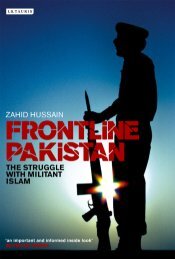Who Owns Pakistan - Yimg
Who Owns Pakistan - Yimg
Who Owns Pakistan - Yimg
Create successful ePaper yourself
Turn your PDF publications into a flip-book with our unique Google optimized e-Paper software.
the verge of setting up a viscos plant as a joint venture with leading Hindu<br />
industrialist Nagin Das Phool Chand when <strong>Pakistan</strong> came into existence and he<br />
decided to migrate to <strong>Pakistan</strong> along " with his Chevy car".<br />
Saigols had set up a Rubber Shoes Factory at Calcutta in 1930 and were<br />
planning their first textile mills, also at Calcutta, when <strong>Pakistan</strong> was born. The<br />
machinery was shifted to <strong>Pakistan</strong> to set up Kohinoor Textile Mills at Faisalabad<br />
on personal intervention of the country's founder Quaid-e-Azam Mohammad Ali<br />
Jinnah. Nasim Saigol of the Saigol group claimed in an interview with the author<br />
that the first Letter of Credit opened with State Bank of <strong>Pakistan</strong> was for the<br />
setting up of Kohinoor Textile Mills at Faisalabad.<br />
Habib and Sons, the principal company of the House of Habib was incorporated<br />
in 1920 and was leading in metal business including gold bricks with the " Loin of<br />
Ali" embossed on it. An advertisement in daily Dawn of August 15, 1947 boasted<br />
that Habib Bank has a paid-up capital of Rs 5 million and deposits of Rs 122<br />
million. Yet it was considered as " the least of several projects the Habibians had<br />
developed in India".<br />
Bawanies had set up their first hosiery mill at Rangoon in Burma, in 1931. They<br />
were first among the Memons to open a purchase office in the Japanese city of<br />
Kobe and contribute in the construction of Japan's first mosque. Ahamd Karim<br />
Bawany, founder of the Bawany dynasty, also financed the first <strong>Pakistan</strong>i<br />
delegation to United Nation in 1950, under the leadership of Dr Amanullah Khan.<br />
In 1947, Mian Mohammad Ismaeel of the Colony group was operating a chain of<br />
14 ginning factories and four flour mills while work was in progress on Colony<br />
Textile Mills which was to become the first textile mill to be commissioned in<br />
independent <strong>Pakistan</strong>.<br />
Hashwanies slated to join the rank of the 22 families in the 1990 had migrated to<br />
Karachi from Gujrat in 1885 and were representing Raleigh Brothers, in a joint<br />
venture with two Hindu partners who left in 1947, leaving the business to Hussain<br />
Hashwani, father of sadruddin Hashwnani who incorporated Hassan Ali and<br />
Company.<br />
The 1970 edition of the Biographical Encyclopedia of <strong>Pakistan</strong>, 1970 published<br />
by international Publisher ( <strong>Pakistan</strong>) Ltd, Lahore included sketches of several<br />
Muslim industrialists who were running business in India before <strong>Pakistan</strong> was<br />
born. For example the Encyclopedia describes Abdul Sattar Ahmad son of Seth<br />
Ahmad Abdul Karim of Jetpur, as one of the very few families who took to<br />
industries before independence. When <strong>Pakistan</strong> was born, Abdul Sattar and his<br />
family migrated to <strong>Pakistan</strong> " leaving behind vast moveable and immovable<br />
property". Sattar himself moved to Dhaka where he set up Sattar Match Factory<br />
at Shampur, 4 miles from Dacca, Karim Jute Mills, Dacca Jute Mills and Karim<br />
Commercial Company.<br />
10













